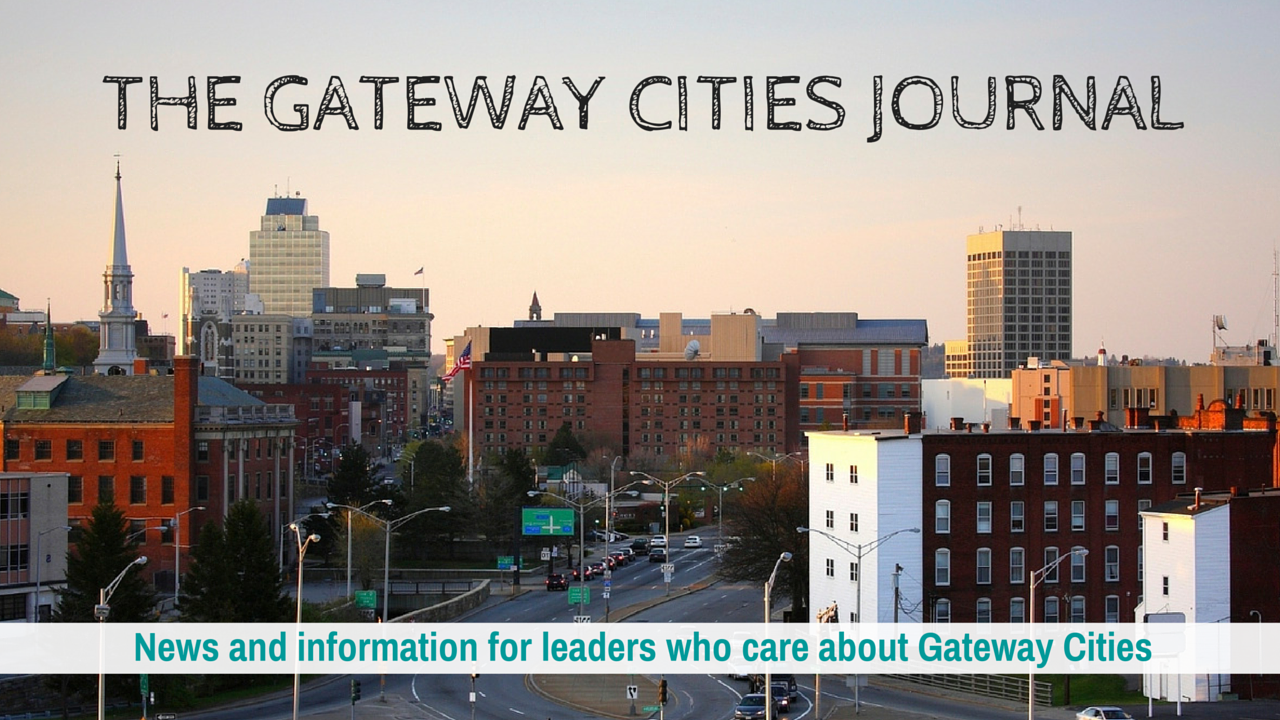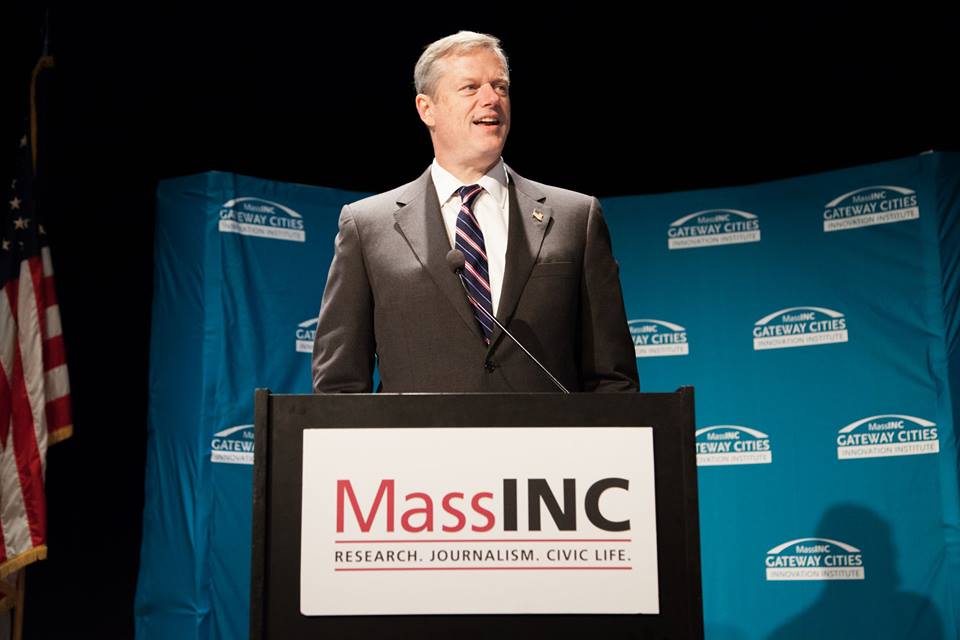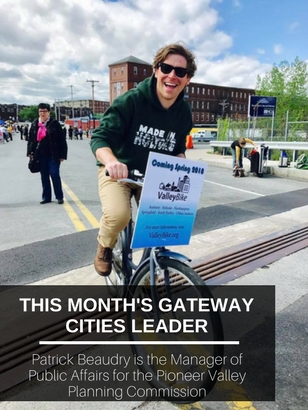
Governor Baker’s FY 2019 budget makes no direct reference to Gateway Cities, but it nonetheless reflects a series of policies and priorities with respect to these vital urban communities.
The most significant piece is the proposed increase in the earned income tax credit (EIC). Governor Baker’s first budget proposal called for doubling the EIC and covering the cost by eliminating the state’s prodigiously wasteful film tax credit. Back in 2015, the legislature balked at eliminating the film credit, and increased the state’s EIC more modestly, from 15 to 23 percent of the federal credit. The governor’s FY 2019 proposal would bring the value up
to 30 percent for the more than 450,000 individuals claiming the EIC. As we noted in a blog the last time around, Gateway City residents make up the majority of these tax filers.

The administration’s budget blueprint offers a couple of notable education investments. The most significant is $3 million for the Early College Initiative. This is a decent down payment on a project estimated to cost $15 million at full scale. The budget also gives a 7 percent increase to the Connecting Activities program, which Gateway City high schools rely on to provide students with work-based learning experiences. At nearly $4 million, the program is still below its 2007 peak, but with the administration’s support, it is steadily moving in the right direction.
On the higher education side, the budget also calls for doubling the MassGrant to help low-income students attend community colleges. However, this increase in spending on Gateway City community college students will be more than offset by reductions to community college budgets. The administration’s proposal reduces the budgets for the 8 institutions serving Gateway Cities by $3.7 million or 2.5 percent.
While early education spending is always difficult to parse, it appears the budget sustains support for salary increases adopted last year to maintain the educator workforce. It does not provide funding for preschool expansion, which Gateway City educators have long sought to level the playing field for disadvantaged students.
With corrections reforms progressing through the legislature, it is interesting to see how the budget treats correctional expenditure. There are no funds allocated for reentry services or correctional programming to reduce recidivism. However, once again, the administration is making a push to address the underfunding of agencies historically led by Republican sheriffs.
Worcester County’s budget would rise by just under 10 percent, followed by Bristol County with a 15 percent increase, and Essex County with a 33 percent bump. If the legislature were to go along, and these funds were spent effectively on recidivism reduction, Fall River, Fitchburg, Haverhill, Lawrence, New Bedford, and Worcester would see public safety benefits. The administration also remains true to its support for the Safe and Successful Youth Program with a $7.5 million request for the program.
Equitable transportation funding has long been a concern for Gateway City leaders. On this score, there’s bound to be some disappointment. The administration’s budget calls for level funding regional transportation agencies. Adjusting for inflation, this would represent an 8 percent decrease in RTA support since FY 2016.
There are several small line items that have generated outsized energy and strategic direction for Gateway City renewal. As with every budget, you’ll find good and bad news combing through these. While there is no appropriation for the Transformative Investment Fund or the Working Cities Challenge, the budget more than doubles the Small Business Technical Assistance Grant to $2 million and provides $500,000 for the Governor’s Urban Agenda grant.
That’s a quick tally. Let us know what you think and what priorities you see for FY 2019.
– Ben Forman
Education
Jeff Riley, receiver and superintendent of Lawrence public schools, is tapped as the state’s next education commissioner. Mayor Rivera makes a compelling case for why he was the best choice.
In an editorial, The Republican says the state needs a long-term early education strategy.
 Brockton High School receives a Tobisha grant for their Sustainable Urban Environment program.
Brockton High School receives a Tobisha grant for their Sustainable Urban Environment program.
Fall River gets federal funds to help in their efforts supporting students relocated from Puerto Rico. The Fall River City Council approves plans for a new Durfee High School at a cost of $263.5 million, making it one of the most expensive schools in the state if approved by voters and the School Building Authority.
After a lengthy dispute about whether a new high school should go downtown or on the outskirts of the city, the Lowell City Council is still looking at a variety of options.
Housing & Economic Development
This week’s Banker & Tradesman is all about Gateway Cities (firewalled).
Facing community backlash, a developer resubmits plans for a private dormitory in Lowell.
Economic development secretary Jay Ash reveals the key to economic prosperity in downtown Brockton.
Rob Meillion is leaving the Fall River (Bristol County) Chamber.
The Item looks at whether the Lynn economic development dream team is making progress.
Pittsfield names a new business development manager to help execute the city’s economic development strategy. Business West looks at the strategy, including the role the Transformative Development Initiative is playing.
Worcester acquires land adjacent to St Vincent Hospital for development. CommonWealth looks at how the city’s staging a comeback.
The state’s ludicrous tax breaks for the film industry totaled an astounding $100 million last year.
The New York Times tells the story behind Economic Opportunity Zone provisions in the federal tax reform package. Enterprise describes how they work.
How come the Kalamazoo Promise didn’t increase home values?
Governance
Chelsea city leaders engage in discussions over plastic bag ban with hopes of a more environmentally friendly future
A year after being put off, Fall River officials received approval to issue bonds using the state’s higher rating, potentially saving the city hundreds of thousands of dollars in interest payments and attracting a larger pool of buyers.
Salem is preparing to seek state approval to impose a 6 percent tax on short-term (Airbnb) rentals.
Governing offers five simple ways to gauge a mayor’s success.
Transportation
Haverhill receives reimbursements from the state after intense efforts to replace the East Broadway Bridge
Hopes are high after MassDot announces plans to study the Boston-Springfield line.
MassDot recommits to SouthCoast Rail in their 20-year rail plan.
Communities and People
Winterfest comes to Fitchburg on February 10th.